People's Army Newspaper respectfully introduces the full text ofthe President's speech.
- Dear leaders, former leaders of the Party, State, and leaders of the Ministry of Foreign Affairs through the periods!
- Dear delegates and distinguished guests!
- Dear Conference!
In the heroic and vibrant atmosphere of the historic April days of our Vietnamese people, today, I am very pleased to attend the International Conference "50 years of national reunification: The role of diplomacy in peace-building in history and present".
First of all, on behalf of the Party and State leaders, I would like to respectfully send to the leaders, former leaders of the Party and State, leaders of central and local departments, ministries, branches, and organizations; revolutionary veterans, historical witnesses; scientists; representatives of diplomatic missions and international organizations, and all comrades and distinguished guests my warmest greetings and best wishes.
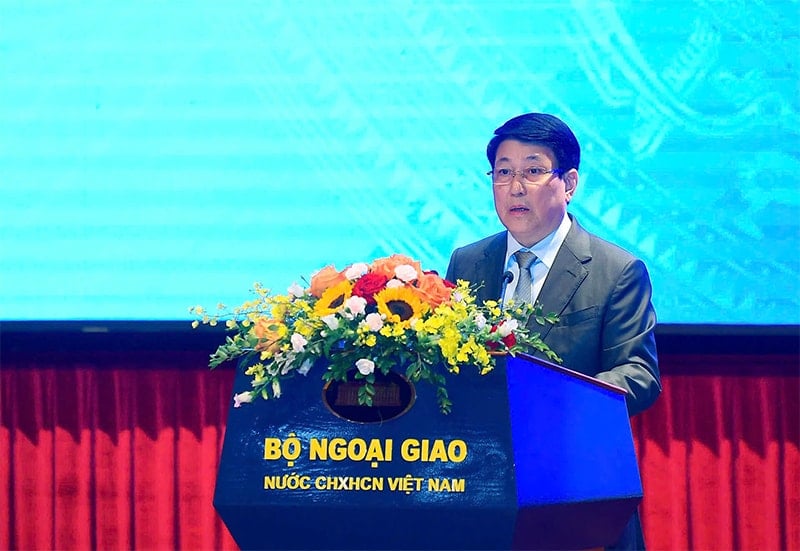 |
| President Luong Cuong speaks at the International Conference “50 years of national reunification: The role of diplomacy in peace-building in history and present” |
Dear delegates and guests!
1. Every country and nation in the world, whether big or small, generally goes through turning points, historical crossroads that decide their destiny and path of development. For Vietnam, the victory on April 30, 1975, completely liberating the South, was an extremely important event in the nation's history. From here, Vietnam was completely unified, the country was reunited; the Vietnamese people entered a new historical era - the era of independence, unity, and the whole country moving towards socialism. The 4th National Congress of the Communist Party of Vietnam (1976) affirmed: " Time will pass, but the victory of the Vietnamese people in the resistance war (against the US) to save the country will forever be recorded in the nation's history as one of the most brilliant pages , a shining symbol of the complete victory of revolutionary heroism and human intelligence" (1). In that historic victory, there was a great contribution of Vietnamese diplomacy. Half a century has passed, but the historical significance and profound lessons from the victory of April 30, 1975 for Vietnamese diplomacy in creating peace, protecting and building our beloved Vietnam still remain valuable, with profound national and contemporary significance.
2. Looking back at the history of the Vietnamese people's struggle for national liberation, independence and reunification, we are more clearly aware of the very important role of diplomacy. As soon as the country gained independence (in 1945), our beloved Uncle Ho sent many telegrams and letters to the heads of state and foreign ministers of the United States, China, the Soviet Union and the United Nations, clearly expressing the spirit that "Vietnam is ready to be friends with all democratic countries and not to create enmity with anyone" (2). After 9 years of long resistance war against French colonialism, Vietnam - a small, backward country heavily devastated by war, was forced to enter a arduous and sacrificial fight against the invading American imperialists. Once again, the strength of patriotism, indomitable will, and iron determination with the spirit of "Nothing is more precious than independence and freedom" of the entire nation shone. In the unequal fight against the much more powerful invaders, the Party and State of Vietnam soon determined that it was necessary to closely combine military, political and diplomatic fronts. In the Resolution of the Politburo in 1969, it was determined: "Diplomacy has become an important front of strategic significance" (3) . Since then, diplomacy has become an important tool, contributing to dividing the enemy, gaining the support of international friends and spreading the righteousness of the struggle of the Vietnamese people to the world.
The vision and clear thinking of the Communist Party of Vietnam on foreign affairs were put forward at the right time, very suitable for the international context at that time. In particular, the rise of "revolutionary currents" , especially the national liberation movement, the international workers' movement, and the support of progressive people around the world were the basic conditions that helped Vietnamese diplomacy combine national strength with the strength of the times for the cause of fighting to liberate the South and unify the country.
3. The peace-building role of Vietnamese diplomacy has been demonstrated throughout historical periods, from the struggle for national liberation and reunification to building and developing the country in peacetime.
First of all, diplomacy has mobilized great material and spiritual support from socialist countries and progressive peoples around the world, creating an unprecedentedly large international movement in support of the just struggle of the Vietnamese people. Through the skillful diplomatic activities of President Ho Chi Minh and the leaders of Vietnam, the Soviet Union , China, Laos, Cambodia, socialist countries and international friends have given the Vietnamese people their sincere and wholehearted support and assistance. Millions of people, from leaders and politicians such as Cuban President Fidel Castro, Swedish Prime Minister Olof Palme to people in the United States, took to the streets to protest against the war of aggression against Vietnam. Together with our compatriots in the country, our overseas compatriots have promoted their patriotism and participated in the resistance war in many forms. Many people have volunteered to return home, contributing their knowledge and assets to save the country. In the history of the 20th century, there have been few national struggles that have gathered such widespread and strong support both at home and abroad as the Vietnamese people.
Second, diplomacy coordinated smoothly and closely with the military and political fronts, opening up a situation of "fighting and negotiating at the same time", thereby achieving victory step by step, creating the premise to bring the cause of fighting to liberate the South and unify the country to complete victory. With our great victories on the battlefields, especially the victory of “Hanoi - Dien Bien Phu in the air” (December 1972), the US was forced to sign the Paris Agreement to end the war and restore peace in Vietnam. The fierce intellectual battles at the negotiating table of the Geneva Conference in 1954 and the Paris Conference (from 1968-1973) of Vietnamese politicians and diplomats, typically comrades Pham Van Dong, Le Duc Tho, Nguyen Thi Binh, Nguyen Duy Trinh, Xuan Thuy... have gone down in history, affirming Vietnam's mettle and intelligence, making the opponent respect. The Paris Agreement in 1973 became the pinnacle of victory of Vietnamese diplomacy in the Ho Chi Minh era, completing a stage of the resistance war of “Fighting to make the US go away” (4). After the Paris Agreement was signed, diplomacy continued to play an important role in promoting the parties to implement the Agreement, especially forcing the US to withdraw its troops from Vietnam, creating an important premise to "Fight to overthrow the puppet regime" (5) on April 30, 1975, achieving complete victory, completely liberating the South, and unifying the country.
Third, diplomacy has made an important contribution to national reconstruction, successfully implementing foreign policy during the Doi Moi period, opening up a favorable foreign situation for national construction and defense.
When the country was still engulfed in the flames of bombs and bullets, President Ho Chi Minh affirmed: “We are ready to roll out the red carpet and scatter flowers for the US to withdraw” (6). Vietnam’s humane treatment of American prisoners of war, prisoner exchanges during the implementation of the Paris Agreement, creating favorable conditions for the US to evacuate citizens and military personnel in the last days of April 1975, and cooperation in searching for missing Americans... were goodwill gestures, creating the premise for the two sides to resume the bridge of cooperation. Later, American veterans who had fought in Vietnam such as John McCain and John Kerry (7) were the most active and proactive in promoting the normalization and development of relations with Vietnam.
After April 30, 1975, diplomacy continued to clarify the righteousness of Vietnam's noble international mission to help the Cambodian people escape the genocidal regime; gradually break the siege and embargo, contributing to helping the country overcome socio-economic difficulties.
During the 40 years of Doi Moi, diplomacy has made many practical contributions to great achievements of historical significance. From a backward country, heavily devastated by war, Vietnam is now in the top 35 leading economies in terms of GDP scale, and the top 20 leading economies in terms of international trade. From a besieged and isolated country, Vietnam now has diplomatic relations with 194 countries, establishing a network of 34 countries with comprehensive partnerships or more, including all permanent members of the United Nations Security Council, all G7 members, 18/20 G20 economies, and all ASEAN countries.
If in wartime, the primary task of foreign affairs is to contribute to the struggle for national independence and unification, then in peacetime, foreign affairs takes the lead in building peace, protecting the Fatherland "early and from afar", expanding the country's development space and strengthening the close friendship, equal cooperation and mutual benefit between Vietnam and other countries and international partners.
4. Half a century has passed, but the struggle for national independence, national unification, and the building and protection of the Fatherland has left many valuable lessons for diplomacy .
For Vietnam, it is a lesson in creatively applying Ho Chi Minh's ideology and diplomatic style; upholding the spirit of independence, self-reliance and self-improvement; combining national strength with the strength of the times; closely following the motto "adapting to all changes with the unchanging", always steadfast in the strategic goal of national independence associated with socialism, but very flexible in strategy; a lesson in attaching importance to the close coordination between foreign affairs with national defense, security, economy and other key areas in protecting and building the Fatherland; a lesson in promoting the role of overseas Vietnamese - an inseparable part of our Vietnamese ethnic community.
For international friends, the historic victory of April 30, 1975 and the strong revival and development of Vietnam are typical examples of a resilient, indomitable, peace-loving, peaceful and very humane nation.
In the great victory and great achievements in the cause of national construction in the new period of the Vietnamese people, the Party, State and people of Vietnam always remember, respect and are deeply grateful for the support and companionship of friends and progressive people around the world, including the American people, who have stood side by side with the Vietnamese people in the struggle for peace, justice and the truth that "Nothing is more precious than independence and freedom".
Dear delegates and guests!
5. The world is witnessing many historic turning points. The international economic, political and security environment is evolving rapidly, complexly and unpredictably. Large-scale conflicts and wars are still occurring in many places, causing great losses to the people. Maintaining peace, repelling and preventing wars and conflicts have become urgent demands of the times.
Vietnam is deeply aware that the future and destiny of the country are closely linked to peace, stability, cooperation and development in the region and the world. Entering a new era, an era of strong and prosperous development, Vietnam consistently pursues a foreign policy of independence, self-reliance, peace, friendship, cooperation and development, multilateralization and diversification of foreign relations; consistently pursues a "4 no's" defense policy; and is ready to actively and proactively contribute to world politics, the global economy and human civilization.
With that spirit, I hope that today's conference will contribute to recognizing and clarifying the factors, lessons, roles and even the great and outstanding contributions of Vietnamese diplomacy during the period of national liberation, unification and development. At the same time, it will suggest practical directions for Vietnam and the international community to join hands in creating and maintaining sustainable peace in the region and the world.
Dear delegates and guests!
6. The 50th anniversary of the liberation of the South and national reunification is a major political event, a historic victory for the Vietnamese people, and also a common victory for progressive people around the world; demonstrating the aspiration for peace, independence, freedom and happiness. Although years have passed, the profound timeliness and topicality of the “Vietnam story” remains intact, shining with the noble values of the journey to seek lasting peace, dialogue, healing the wounds of war, national reconciliation, reconstruction and development.
Once again, on behalf of the leaders of the Party and State of Vietnam, I would like to express my deep gratitude for the great and tireless contributions of the previous leaders, veteran revolutionaries, generations of civil servants and officials of the Vietnamese Foreign Affairs sector, and compatriots, comrades, cadres and soldiers of the People's Armed Forces who have contributed to the cause of national liberation and reunification in the past, as well as to the cause of building and firmly defending the Socialist Republic of Vietnam today. I wish all delegates attending the Conference good health and happiness.
Wish our Workshop great success.
Thanks a lot!
[1] Party Documents, Complete Works, Volume 37, National Political Publishing House, Hanoi, 2004, p.457.
[2] Ho Chi Minh: Complete Works, National Political Publishing House Truth, Hanoi, 2011, volume 5, p.256
[3] Ministry of Foreign Affairs, Diplomatic Front with the Paris negotiations on Vietnam, National Political Publishing House H.2004
[4] President Ho Chi Minh's poem for the Year of the Rooster - 1969
[5] New Year's greeting poem of the Year of the Rooster - 1969 by President Ho Chi Minh
[6] Ho Chi Minh, Biography. LLCT Publishing House. H2006. pp. 603-604.
[7] John McCain, US Senator from 1987 - 2018; John Kerry, Former US Secretary of State from 2013 - 2017
Source: https://baodaknong.vn/phat-bieu-cua-chu-tich-nuoc-luong-cuong-tai-hoi-thao-quoc-te-50-nam-thong-nhat-dat-nuoc-vai-tro-kien-tao-hoa-binh-cua-ngoai-giao-trong-lich-su-va-hien-tai-250353.html







![[Photo] Prime Minister Pham Minh Chinh and Prime Minister of the Kingdom of Thailand Paetongtarn Shinawatra attend the Vietnam-Thailand Business Forum 2025](https://vphoto.vietnam.vn/thumb/1200x675/vietnam/resource/IMAGE/2025/5/16/1cdfce54d25c48a68ae6fb9204f2171a)


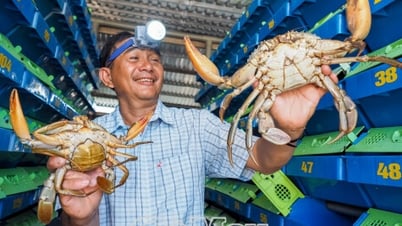

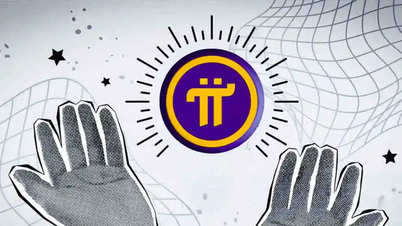

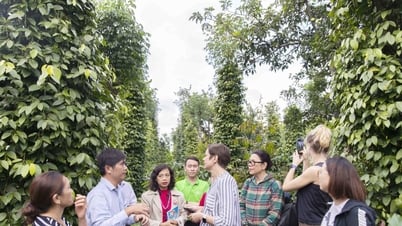
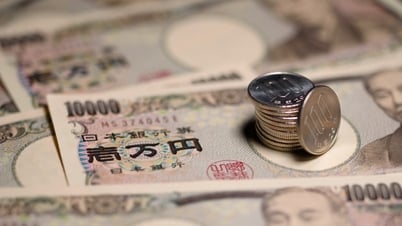
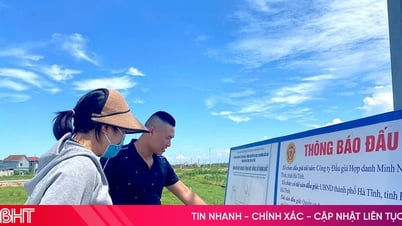




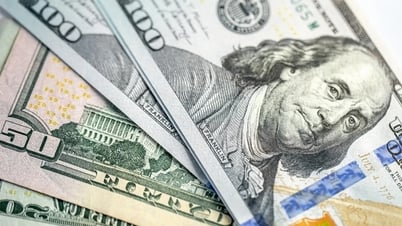
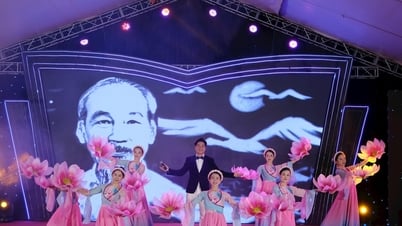
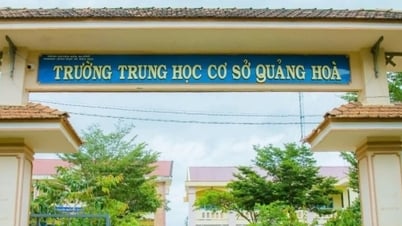
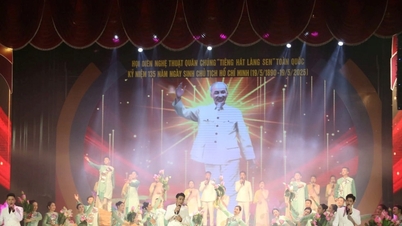
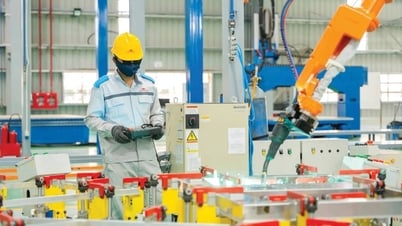
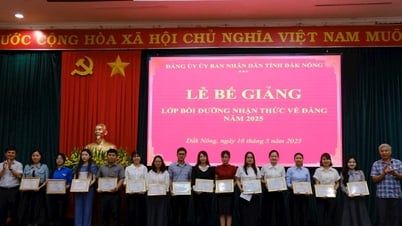
![[Photo] President Luong Cuong receives Prime Minister of the Kingdom of Thailand Paetongtarn Shinawatra](https://vphoto.vietnam.vn/thumb/1200x675/vietnam/resource/IMAGE/2025/5/16/52c73b27198a4e12bd6a903d1c218846)












































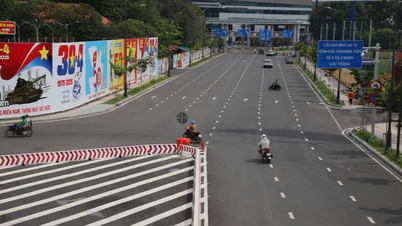

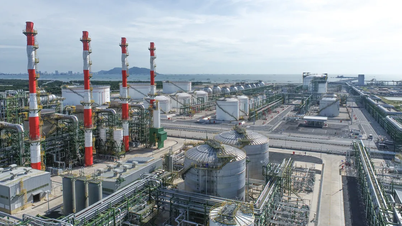
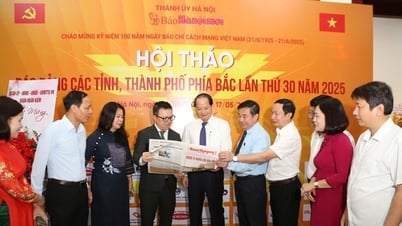

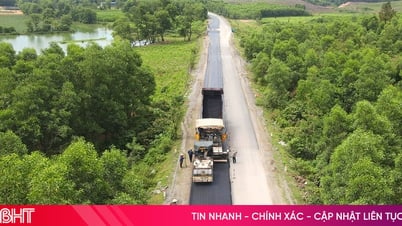
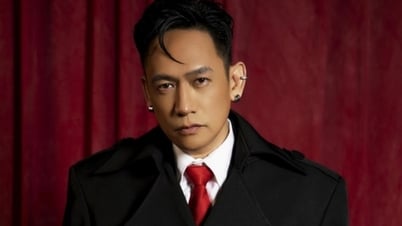

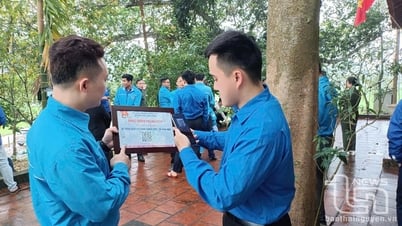










Comment (0)